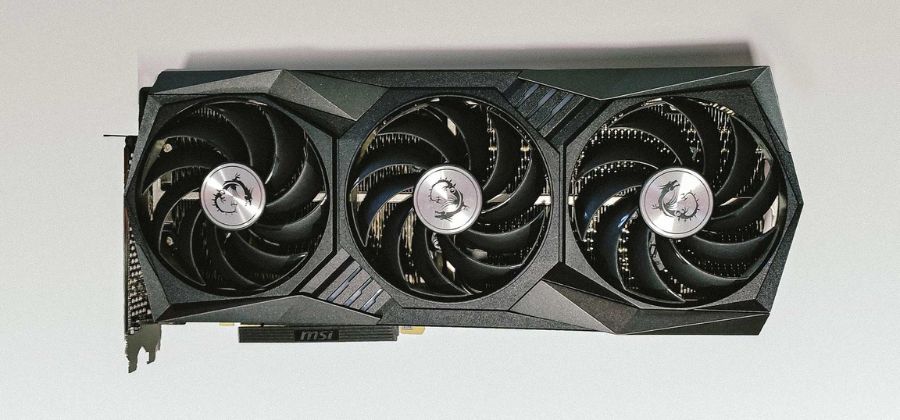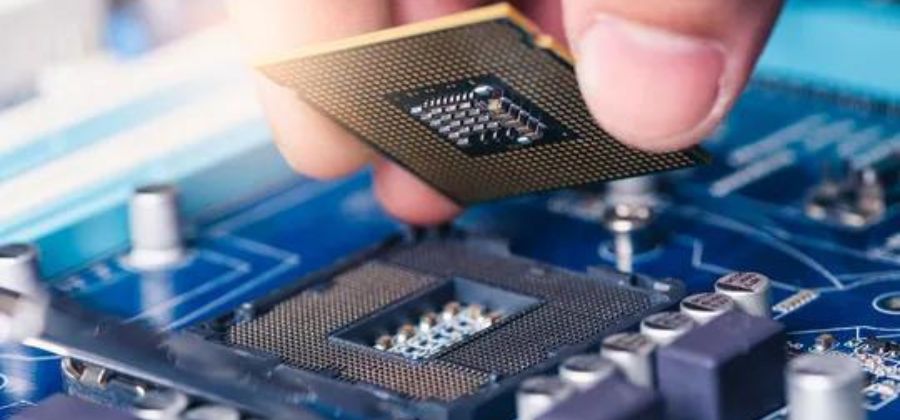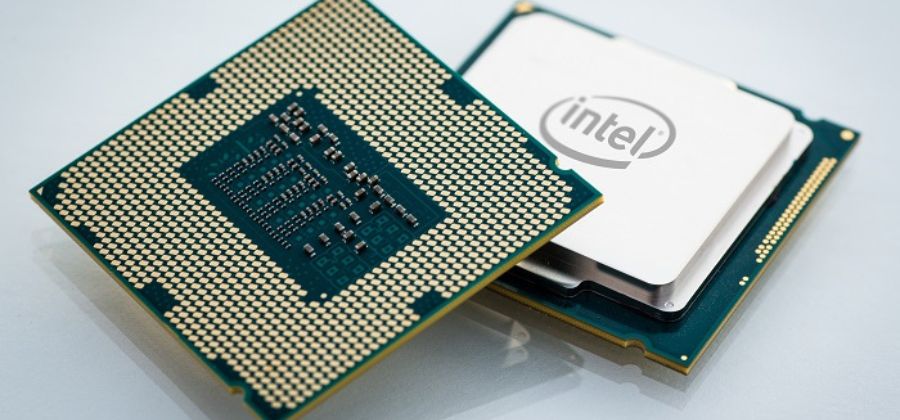A boost clock is essential while overclocking your computer, but you don’t know what base clock and boost clock are. Well, now I am going to explain it to you.
But first of all, you need to understand what clock speed is? So, let’s start.
Clock speed is the essential factor in determining the performance of any CPU, and it is the speed with which the processor executes instructions. When CPUs were clocked faster, they performed better than slower ones in the past.
As a result, there is no point in increasing the clock speed to get better performance. Moreover, increasing clock speed is only beneficial when the processor is under a heavy load.
What is Base Clock Vs. Boost Clock For CPU?
Most people have no idea about the base clock and boost clock for the CPU, which is a fundamental question everyone should know about. The base clock is used to define your CPU’s performance, which is basically your CPU’s frequency. When your base clock is low, then it will result in low performance. However, when your base clock is high, then it will result in higher performance. In short, the higher the base clock is, the better the CPU performance.
Now, let’s talk about the boost clock. When your boost clock is high, it will help you increase your CPU’s performance, and the boost clock will automatically adjust itself to meet the requirements.
So, these are the basic concepts about the base clock and boost clock for the CPU. Now, let’s move on to the real question. What is the base clock vs. boost clock for the CPU?

The base clock is the frequency of your CPU, and it is the most crucial factor determining your CPU’s performance. The base clock is a constant which does not change, whereas the boost clock is an adjustable clock that changes according to the requirements. So, if you want to improve the performance of your CPU, then you should focus on the base clock.
How do you determine the base clock and the boost clock?
To calculate the base clock, you can use the following formula:
Base Clock = (Max Frequency/2)/((CPU IDLE Freq./4) + (Boost Clock/2))
The base clock and the boost clock can be found using the following formula:
Base Clock = CPU Frequency/2
Boost Clock = CPU Frequency
Why Should I Care About Boost Clock for CPU?
There are some fantastic benefits of Boost Clock for CPU, but before we get into those, let’s first understand what exactly Boost Clock for CPU is.
So, it is the clock speed of your processor. The higher the speed, the faster the processor will run and the more powerful it will be. So, it is a crucial component of a computer, and without it, you won’t be able to get the best performance out of your device.
If you think that, why is Boost Clock for CPU essential? Then it is because it will boost your processor’s performance, and it will increase the clock speed of your processor so that you can get more out of it.

Why do some CPUs have higher base clocks than boost clocks?
Let’s start with the most common reasons why the CPUs have higher base clocks than boost clocks.
The first reason is that the base clock is the maximum clock speed of the CPU. In most cases, the base clock is around 3.5 GHz, whereas the boost clock is around 4 GHz.
The second reason is that the base clock is the fastest clock speed that is capable of the CPU. When you see the clock speed of the CPUs, the first thing that strikes your mind is the boost clock which is the maximum clock speed that is capable of the CPU.
The third reason is that the base clock is the CPU’s clock speed when idle. In most cases, the base clock is around 3.5 GHz, whereas the boost clock is around 4 GHz.
The fourth reason is that the base clock is the CPU’s clock speed when it is at the lowest temperature. If the base clock is low, then the boost clock will also be low.
What is the role of the boost clock in CPU performance?
The boost clock is a feature the processor manufacturer provides to increase its clock frequency. This feature allows the processor to work at a higher frequency. When you increase the boost clock, the clock frequency will increase and get faster performance.
CPUs typically work at 2.4 GHz, but you can also choose to set the clock frequency to 4.0 GHz or even more. You will indeed get faster performance when you set the boost clock to 4.0 GHz, but it is also true that you will consume more power.
How to use the boost clock?
To use the boost clock, you need to follow the instructions provided by the processor manufacturer, and the instructions can be found in the motherboard manual.
The maximum boost clock is 100 MHz, and you can also choose to set it to a value that suits your requirement.
Is it a good idea to use both a Base and Boost Clock on your Processor?
Everyone wants to increase their processor speed, but is it a good idea to use both a Base and Boost Clock? The answer is no; you can only use one clock in your processor.
The base clock is the fundamental clock that powers the CPU and its frequency, and it is the clock that controls the processor’s performance. The second clock, called the boost clock, is responsible for increasing the processor’s speed.

So, why do you need a base clock and a boost clock?
For example, a base clock may be 100MHz, and the boost clock may be 150MHz. You may have the base clock as 50MHz and the boost clock as 100MHz. In this case, your processor will run at 50MHz and 100MHz.
You can also have a base clock of 100MHz and a boost clock of 200MHz. In this case, your processor will run at 100MHz and 200MHz.
So, it is possible to have two clocks in a processor, but why do you need a base and boost clock?
Well, the base clock and the boost clock are used to increase the performance of your processor. When you are using a base clock and a boost clock, the processor’s speed is increased, giving better performance.
If you don’t use a base and boost clock, your processor will run at only one speed.
How to Set Base Clock on CPU?
Let’s see the steps to set the base clock to the desired time zone.
Step 1: First, you need to start the command prompt and type the following command to open the Command Prompt.
Type “cmd” in the Start menu and click OK.
Step 2: Now type the following command to open the registry editor and press Enter.
Press Ctrl+F to open the search window. Type the following key “HKEY_LOCAL_MACHINE” and press Enter.
Step 3: Right-click the entry HKEY_LOCAL_MACHINE, select New, and then click on the key.
Step 4: Name it “TimeZone” and then press Enter.
Step 5: Right-click the newly created key, select New, and then click on DWORD (32-bit) Value and type the name of the time zone that you want to set.
Step 6: Press Enter and then enter the value of the time zone that you want to set.
Frequently Asked Questions
Is a higher boost clock a better CPU?
There are no specific guidelines about whether the boost clock speed is better or worse than the stock clock speed, but if you plan to run games at max settings or perform other tasks which require a faster processor, you may want to go for a faster boost clock.
Does Boost clock matter CPU?
It depends. Boosting the clock rate of your CPU usually does not matter much unless you’re overclocking. A boosted clock rate only means that the CPU runs faster, but it doesn’t necessarily mean that it performs better. Boosting the CPU’s clock speed might cause overheating and, thus, damage the processor. So, the decision to boost the clock or not should be based on your particular needs.
What is the difference between a core clock and a Boost clock CPU?
It is the same as having a boost clock and a core clock. They represent processor speed. Processor core clocks are the base clock speeds, and these are the fastest clocks your processor will run at. Boost clocks are used for overclocking and can be achieved by increasing your processor frequency.
What is a good boost clock for a CPU?
A good boost clock for a CPU, by our recommendation, is the OCZ TEMPEST V-1. This unit has been specially designed to provide precise temperature monitoring and control and deliver optimized clock speeds for faster data processing. It also offers a variety of safety features like self-diagnostics, and automatic shutdown, to ensure safe operation.
Final Decision
So, if you are wondering about the difference between a base clock and a boost clock, then you are right. These two clocks are the same in every way, and there is no significant difference between the two.
The base clock is the actual speed of your CPU, and the boost clock is the maximum speed of your CPU.
In short, you can use the boost clock for overclocking.

![How To Fix A CPU Cooler Not Lighting Up? [New Guide 2023]](https://www.drtechreviews.com/wp-content/uploads/2022/07/How-To-Fix-A-CPU-Cooler-Not-Lighting-Up-450x210.jpg)

![Why Is My CPU Cooler So Loud? [Facts 2023]](https://www.drtechreviews.com/wp-content/uploads/2022/07/Why-Is-My-CPU-Cooler-So-Loud-450x210.jpg)
![Fix Dual Monitor Lag In Windows [Explanation For Beginners]](https://www.drtechreviews.com/wp-content/uploads/2022/07/Fix-Dual-Monitor-Lag-In-Windows-450x210.jpg)
![Fix A Monitor Randomly Loses Signal [Problems & Solutions 2023]](https://www.drtechreviews.com/wp-content/uploads/2022/07/Fix-A-Monitor-Randomly-Loses-Signal-450x210.jpg)